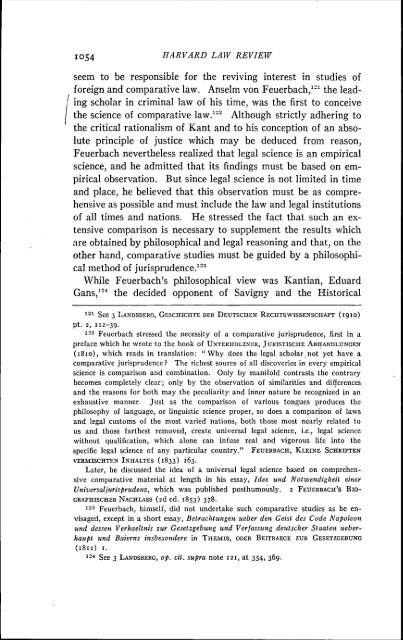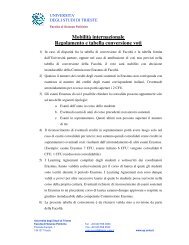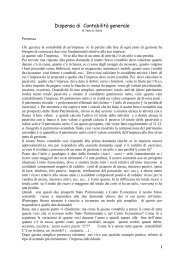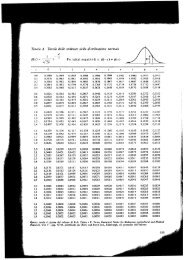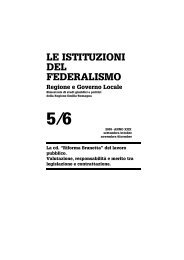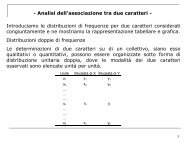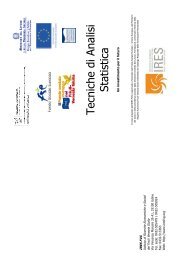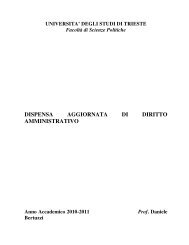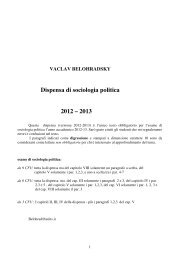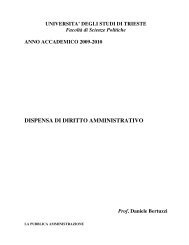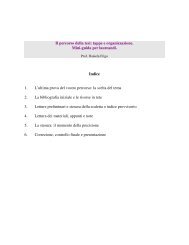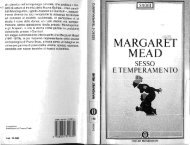THE HISTORY OF COMPARATIVE LAW * ^COMPARATIVE law, as ...
THE HISTORY OF COMPARATIVE LAW * ^COMPARATIVE law, as ...
THE HISTORY OF COMPARATIVE LAW * ^COMPARATIVE law, as ...
You also want an ePaper? Increase the reach of your titles
YUMPU automatically turns print PDFs into web optimized ePapers that Google loves.
1054 HARVARD <strong>LAW</strong> REVIEW<br />
seem to be responsible for the reviving interest in studies of<br />
foreign and comparative <strong>law</strong>. Anselm von Feuerbach,^"^ the leading<br />
scholar in criminal <strong>law</strong> of his time, w<strong>as</strong> the first to conceive<br />
the science of comparative <strong>law</strong>.^" Although strictly adhering to<br />
the critical rationalism of Kant and to his conception of an absolute<br />
principle of justice which may be deduced from re<strong>as</strong>on,<br />
Feuerbach nevertheless realized that legal science is an empirical<br />
science, and he admitted that its findings must be b<strong>as</strong>ed on empirical<br />
observation. But since legal science is not limited in time<br />
and place, he believed that this observation must be <strong>as</strong> comprehensive<br />
<strong>as</strong> possible and must include the <strong>law</strong> and legal institutions<br />
of all times and nations. He stressed the fact that such an extensive<br />
comparison is necessary to supplement the results which<br />
are obtained by philosophical and legal re<strong>as</strong>oning and that, on the<br />
other hand, comparative studies must be guided by a philosophical<br />
method of jurisprudence.^'^<br />
While Feuerbach's philosophical view w<strong>as</strong> Kantian, Eduard<br />
Gans,"* the decided opponent of Savigny and the Historical<br />
121 See 3 LANDSBERG, GESCHICHTE DER DEUTSCHEN RECHTSWISSENSCHAFT (1910)<br />
pt. 2, 112-39.<br />
122 Eeuerbach stressed the necessity of a comparative jurisprudence, first in a<br />
preface which he wrote to the book of UNTERHOLZNER, JURISTISCHE ABHANDLUNGEN<br />
(1810), which reads in translation: "Why does the legal scholar not yet have a<br />
comparative jurisprudence ? The richest source of all discoveries in every empirical<br />
science is comparison and combination. Only by manifold contr<strong>as</strong>ts the contrary<br />
becomes completely clear; only by the observation of similarities and differences<br />
and the re<strong>as</strong>ons for both may the peculiarity and inner nature be recognized in an<br />
exhaustive manner. Just <strong>as</strong> the comparison of various tongues produces the<br />
philosophy of language, or linguistic science proper, so does a comparison of <strong>law</strong>s<br />
and legal customs of the most varied nations, both those most nearly related to<br />
us and those farthest removed, create universal legal science, i.e., legal science<br />
without qualification, which alone can infuse real and vigorous life into the<br />
specific legal science of any particular country." FEUERBACH, KLEINE SCHKUTEN<br />
VERMISCHTEN INHALTES (1833) 163.<br />
Later, he discussed the idea of a universal legal science b<strong>as</strong>ed on comprehensive<br />
comparative material at length in his essay. Idee und Notwendigkeit einer<br />
Universaljurisprudenz, which w<strong>as</strong> published posthumously. 2 FEUERBACH'S BIO-<br />
GRAPHISCHER NACHLASS (2d ed. 1853) 378.<br />
123 Feuerbach, himself, did not undertake such comparative studies <strong>as</strong> he envisaged,<br />
except in a short essay, Betrachtungen ueber den Geist des Code Napoleon<br />
und dessen Verhaeltnis zur Gesetzgebung und Verj<strong>as</strong>sung deutscher Staaten ueber-<br />
haupt und Baierns insbesondere in <strong>THE</strong>MIS, ODER BEITRAEGE ZUR GESETZGEBUNG<br />
(1812) I.<br />
i^* See 3 LANDSBERG, op. cit. supra note 121, at 354, 369.


